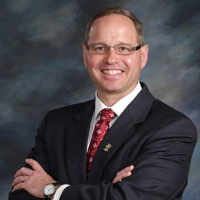 Martin Workout Lawyers, Michigan
Martin Workout Lawyers, Michigan
Sponsored Law Firm
-
 x
x

Click For More Info:
-
Marrs & Terry, PLLC
6553 Jackson Road Ann Arbor, MI 48103» view mapBankruptcy & Debt Personalized, Efficient Counsel
Marrs & Terry, PLLC have been helping individuals face a variety of legal challenges, including bankruptcy, estate planning and administration, and family law.
800-862-7221
Not enough matches for Martin Workout lawyer.
Below are all Martin Bankruptcy & Debt lawyers.
Sponsored Lawyers
1-10 of 20 matches
Bankruptcy & Debt, Wills & Probate, Contract, Elder Law, Estate Planning
Michael Willis founded this firm with his brother, Shaun Patrick Willis. Their father, Hon. Frank D. Willis, is the probate judge for Van Buren County, and Michael proudly carries on the family tradition in estate law by focusing his practice in estate planning, probate and estate and trust administration, and estate litigation. He also has a concentrated practice in corporate law and business succession planning, along with real estate development and transactions. Michael is registered as a Certified Public Accountant in the State of Illinois, and is licensed to practice law in both Florida and Michigan. Michael received his J.D. from the University of Michigan Law School. He graduated magna cum laude with a B.A. from the University of Notre Dame. Before forming Willis Law, Michael worked for Varnum, Riddering, Schmidt & Howlett LLP and Kerr, Russell, Weber, PLC.
(more)




 Tricia Terry Ann Arbor, MI
Tricia Terry Ann Arbor, MI AboutExperienced Michigan Lawyer
AboutExperienced Michigan Lawyer Articles
Articles

